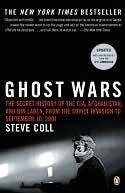More on this book
Community
Kindle Notes & Highlights
by
Steve Coll
From a kingdom where politics arose from family ties and power was bargained through personal contacts, the Saudi royals concentrated nearly all their effort on networks of friends at the highest levels of the American government. This approach insulated the Saudi elite from their country’s harsh and sometimes fulminating critics at the working levels of the U.S. police and intelligence bureaucracies.
American intelligence and diplomatic reporting documented the Taliban’s weakening grip during 2000. The Taliban’s “popularity and legitimacy now appear to be in decline,” Inderfurth testified to Congress on July 20. “We believe the Taliban have reached their high-water mark.” Yet American policy remained paralyzed over whether to confront the Taliban or engage.
Later, in the West Wing of the White House, Berger told his successor, “You’re going to spend more time during your four years on terrorism generally and bin Laden specifically than any issue.”8 The warnings did not register.
In July the CIA’s Counterterrorist Center reported that it had interviewed a source who had recently returned from Afghanistan. The source had reported, “Everyone is talking about an impending attack.”23
The CIA apparently did not formally notify the FBI about this alarming discovery.
astonishingly passive Pentagon
“You are left with a modest effort to swat flies,” Clarke declared. “You are left waiting for the big attack, with lots of casualties, after which some major U.S. retaliation will be in order.”6


